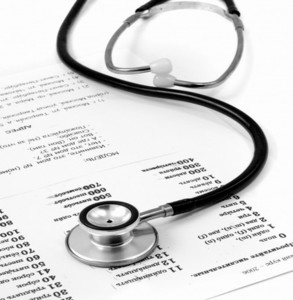How do concerns about the safety of domestic biologicals limit the uptake of ‘similar biologics’ in India? This is a question that author Malipatil tried to address in his review of similar biologics in India [1].
Safety concerns limit similar biologics uptake in India
Biosimilars/Research
|
Posted 26/02/2016
 0
Post your comment
0
Post your comment

Despite the high acceptance of similar biologics in India, some physicians remain sceptical with regards to the safety and efficacy of similar biologics and are slow to adopt these drugs. One problem with all biologicals is immunogenicity, or their ability to induce a humoral and/or cell-mediated immune response. This was highlighted in the late 1990s when cases of pure red cell aplasia (PRCA) were reported after the formulation of Eprex (epoetin alfa) was changed [2].
Although patients, physicians, insurance providers and the Indian Government are attracted by the cost savings offered by similar biologics compared to originator biologicals, there remain concerns regarding the safety, efficacy and quality of these products. This is mainly due to the lack of stringent evaluation guidelines from the Indian drug regulatory system.
This lack of stringent regulation is highlighted by the fact that noticeable differences in potency have been found between several Indian similar biologics compared to their reference biologicals. A study carried out by Boehringer Ingelheim revealed that the India-registered Elaxim (tenecteplase; Emcure) was not a similar biologic to Metalyse (tenecteplase; Boehringer Ingelheim). The study also concluded that differences in the manufacturing process had introduced impurities that affected the potency and efficacy of the similar biologic. Similarly, Roche conducted studies comparing their originator biological Rituxan (rituximab) with Reditux (rituximab; Dr Reddy’s) and highlighted numerous differences including a much higher level of remaining host cell proteins in Reditux compared to Rituxan, as well as differences in glycosylation.
Conflict of interest
The authors of the research paper [1] declared that there were no conflicts of interest.
Editor’s comment
It should be noted that ‘similar biologics’ approved in India might not have been authorized following as strict a regulatory process as is required for approval of biosimilars in the European Union. The EMA (European Medicines Agency) regulatory requirements ensure the same high standards of quality, safety and efficacy for biosimilars as for originator biologicals, and also include a rigorous comparability exercise with the reference product.
Related articles
Lack of health insurance limits access to biologicals in India
Partnerships driving similar biologics development in India
Domestic biologicals cost less in India
Low costs and less stringent regulatory requirements in India
Factors affecting the uptake of ‘similar biologics’ in India
Regulation and uptake of ‘similar biologics’ in India
References
1. Malipatil NB, Haridas KM, Shruthi DP. Biosimilars and regulations: a review. J Pharm Biomed Sci. 2015;05(06):453-68.
2. GaBI Online - Generics and Biosimilars Initiative. Epoetin alfa and pure red cell aplasia [www.gabionline.net]. Mol, Belgium: Pro Pharma Communications International; [cited 2016 Feb 26]. Available from: www.gabionline.net/Biosimilars/Research/Epoetin-alfa-and-pure-red-cell-aplasia
Permission granted to reproduce for personal and non-commercial use only. All other reproduction, copy or reprinting of all or part of any ‘Content’ found on this website is strictly prohibited without the prior consent of the publisher. Contact the publisher to obtain permission before redistributing.
Copyright – Unless otherwise stated all contents of this website are © 2016 Pro Pharma Communications International. All Rights Reserved.
News
FDA approves Poherdy (first interchangeable pertuzumab) and Armlupeg (pegfilgrastim) biosimilars
EMA recommends approval for insulin glargine biosimilar Ondibta and denosumab biosimilar Osqay
General
Samsung Bioepis wins Pyzchiva case; Regeneron patent rulings threaten foreign biosimilars
Chinese biosimilars go global: growth, partnerships, and challenges
What is the future for the US biosimilar interchangeability designation

Biosimilars/Research Posted 05/06/2025
Biosimilar clinical efficacy studies: are they still necessary?

Biosimilars/Research Posted 27/05/2025
The best selling biotechnology drugs of 2008: the next biosimilars targets








Post your comment